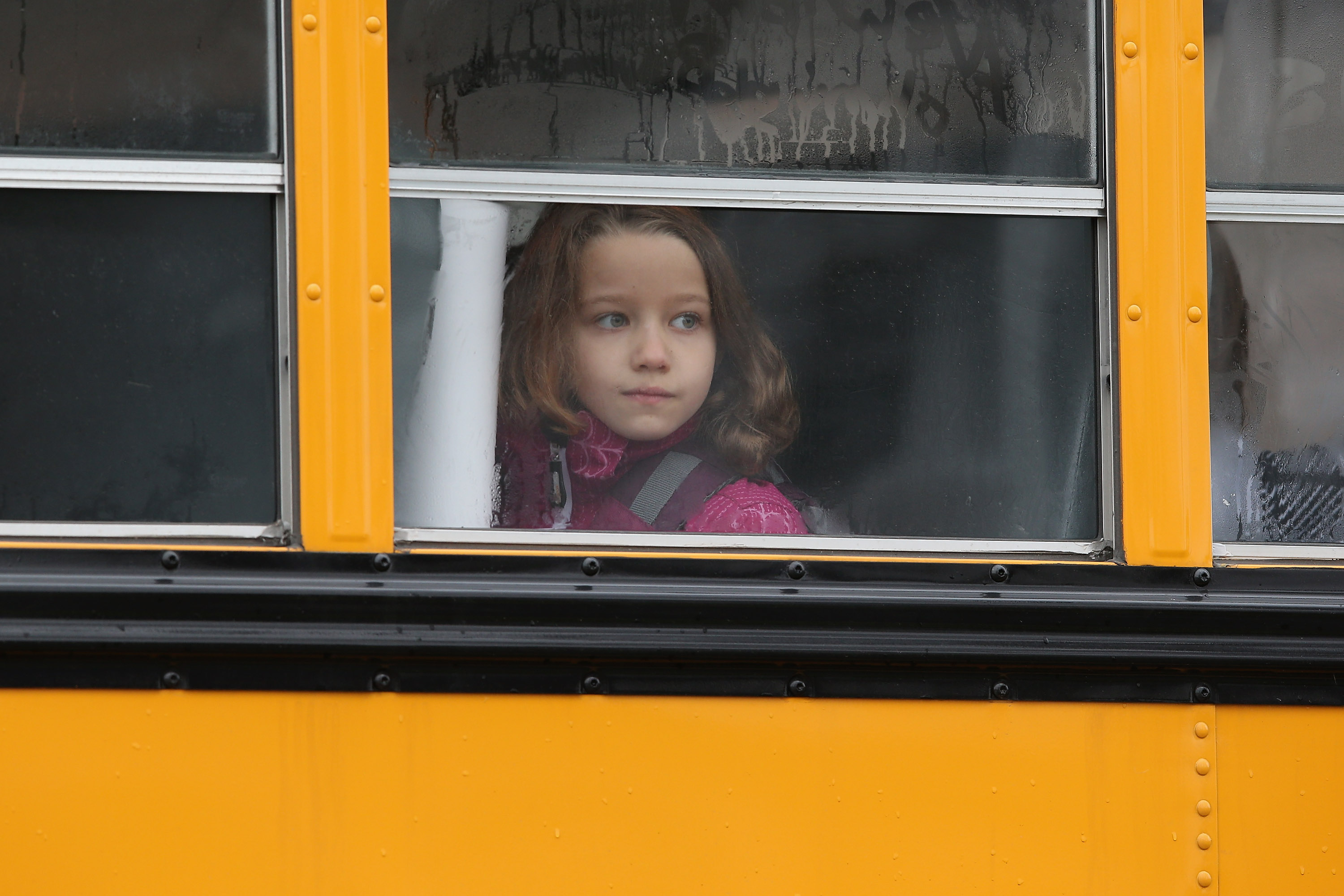For students of all ages, and even their parents, hearing the three little words ‘back to school’ can provoke mixed emotions of excitement and dread, or even stress and anxiety.
“Back to school worrying can take a temporary toll on students of all ages,” says Dr. Michael Kisicki, a child and adolescent psychiatrist at UConn Health. “But the uptick in feelings of worry, stress, and anxiety may be more prevalent and have a more significant impact on younger school-aged kids.”
Each year during the back-to-school season, Kisicki notices an increase in young children and their parents coming in for assessment and counseling a few weeks before and after the school year begins.
He says most often, younger children may be experiencing some level of anxiety about going back to school, or separation anxiety from being away from their parents; they may even be trying to avoid going to school. The kids most at risk for back-to-school anxiety are those who already tend to be anxious, with school stressors making it worse.
Symptoms of child anxiety that parents should be on the lookout for are:
- Sleep habit changes or sleep disturbances;
- Appetite changes of undereating or overeating;
- Repeat complaints of stomach pain or headache;
- Isolating behavior, such as the child not wanting to go to school or outside to play;
- Exhibiting more negative behaviors of acting out, tantrums, aggressive or destructive behavior, and pretending to be sick to avoid school.
“The best thing a parent can do to prevent or lessen anxiety in their child – or even themselves – is to make sure they are taking care of their body and brain with a healthy diet, exercise, and enough sleep,” says Kisicki.
For reducing stress and anxiety in younger school children, he recommends that parents:
- Coach your child to do self-talk as a technique to lower their stress or anxiety level should it flare up, as well as doing stress-relieving ‘box breathing,’ which involves inhaling a slow, deep breath and holding it for a few seconds before slowly exhaling;
- A week or two before school, begin getting your child back on a school schedule for eating and sleeping;
- Work with the child to get their preferred school clothes ready;
- Practice and role play with your child some of the school day interactions and conversations they may encounter with classmates or teachers;
- Visit the school grounds in advance of the first day of school, especially if the child is new to the school, to ease them back into the school environment. Potentially visit the school’s playground, the child’s classroom, or plan to briefly meet with the teacher to alleviate any worries;
- Schedule a playdate with one or more classmates to socially ease your child back to school and so that they look forward to school’s start and seeing their friends;
- Refrain from yelling at your child each morning to wake up and get ready for school. To avoid the morning school rush, have them pick out their outfits the night before, and wake them a half hour earlier in the morning;
- Further shape the child’s good school behavior by rewarding mutually agreed-upon goals. For example, try keeping track on the refrigerator of the child’s school attendance or timeliness for the bus.
For older school children – teens and college students – Kisicki says their back-to-school worries may be linked to their academic and social expectations for the school year, ranging from major school milestones (SATs, college applications, etc.) to whether they think they will have the right clothes to wear and if they will still fit in with their friends.
Stress symptoms in teens may include a rise in irritability, social withdrawal by spending more time in their bedroom, or physical symptoms of stomach and headaches. College students may have a similar stress experience, but are at higher risk of skipping classes and turning to alcohol or other substances to cope.
For older students, Kisicki says the best course of action for parents is to try your best to guide them to get back on a normal routine and healthy habits for school. Making suggestions and giving options to older children can help them feel less stressed and more self-directed. Also, talking about their school year expectations on both an academic and social level is a good idea. A talk about what they hope to accomplish can set a good foundation for the school year.
And a few words of wisdom to parents and teachers: Be sure to keep a good sense of humor, to help reduce your and your child’s level of stress.
“Families can often find themselves in the school stress cycle of yelling for a child to be on time for school or to do their homework in the evening,” says Kisicki. “The yelling routine can actually be counterproductive, since it may end up making the family more stressed and spending more time getting out the door to school or completing evening homework.”
And for teachers, he recommends: “Start off the first days of school light and ease kids – and their parents – back into school.”
Parents seeking assessment for children and teens can contact Kisicki’s West Hartford clinic at 860-523-3745. The practice also assesses and treats parents of the children.



